Recycling Guide
Learn how to recycle right at NC State.
Recycling is one way that NC State can potentially recover the economic and environmental benefits of generated waste. What can, or cannot, be recycled is not universal; it is entirely dependent on our vendors, such as Sonoco Recycling and Waste Management, their processes, and the local/national/global markets for recycled materials.
The following items can be placed in the recycling bins, carts and dumpsters at NC State. Remember, to put recyclables in LOOSE. Bagged recyclables are NOT permitted.
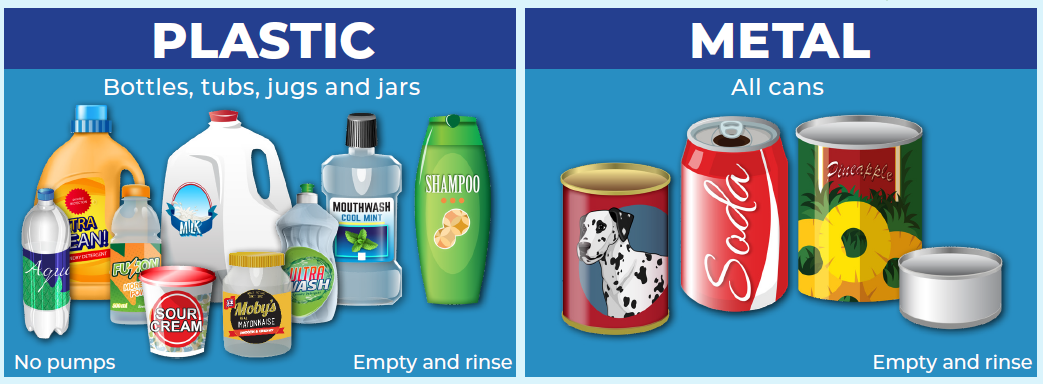
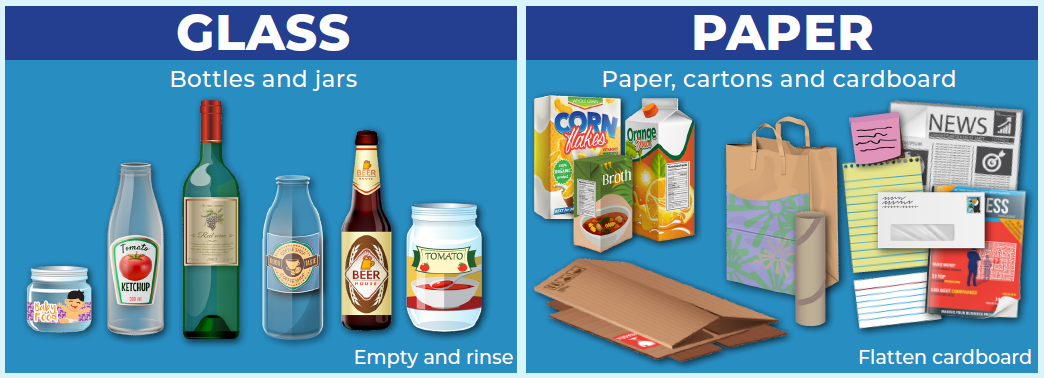
Remember, the following items are NOT accepted for recycling in our campus recycling bins, carts, & dumpsters:

This guide is for materials generated on NC State’s campus. If materials are generated off campus please refer to Wake County Convenience Centers. For more information on where to recycle or properly dispose of these items (and more) on NC State’s campus, please click on an item below. Choose the first letter of the item to jump to that section.
Aluminum

Acceptable Items
- Aluminum cans
- Clean baking pans
- Clean pie tins
- Clean aluminum foil
Recycling Tips
- Always make sure your aluminum is free of food waste before recycling
- If you are unsure if it is aluminum, squeeze it. If it remains scrunched together, it can be recycled. If it springs back to its original shape, it is not recyclable and should be placed in the landfill bin.
Recycling Locations
- Bottles & cans recycling bins
- Mixed recycling bins
- Blue mixed recycling dumpsters
Animal Bedding

Acceptable Items
- Non-hazardous barn waste and bedding
Recycling Locations
- Contact us for special composting arrangements
Appliances

Many white goods can be sold to various purchasers or donated to charitable organizations. If the appliances are still in good working condition, find a reuse option before recycling. For NC State property, please contact University Surplus Property Services.
Acceptable Items
- Refrigerators
- Freezers
- Microwaves
- Water heaters
- Ovens
- AC units
- Appliances
Unacceptable Items
- Lab fridges (contact EHS for questions regarding lab generated white-goods)
Reuse Options
- Small household appliances can be donated during Wolf Pack N Give, NC State’s move-out program
- Donate to a local nonprofit
Recycling Tips
- Do not place white goods into landfill dumpsters
- For NC State property, please contact University Surplus Property Services
- For large items, please contact us
Recycling Location
Autoclave

For information regarding the autoclaved items process, please contact Environmental Health and Safety at (919) 515-7915.
Acceptable Items
- Biological, microbiological, and related wastes that have been autoclaved in accordance to University guidelines.
Disposal Information
- Autoclaved waste should be placed in the red bio-hazardous waste containers, which are located in the vicinity of the larger solid waste landfill dumpsters at buildings containing autoclaves.
- Orange biohazard bags are no longer used at NC State. Only clear bags are acceptable.
- Labeled/marked biohazard bags cannot be placed in regular dumpsters or trash receptacles, even if disinfected.
- If material cannot be decontaminated properly, please contact Environmental Health and Safety at (919) 515-7915.
Batteries

Reduce your use of single-use, alkaline batteries by switching to rechargeable batteries. Rechargeable batteries can be recharged inexpensively and reused hundreds of times. When the life of a rechargeable battery is over, it can be recycled.
Acceptable Items
- Alkaline single-use batteries (can be disposed of on campus but are not currently able to be recycled)
- Rechargeable batteries
- Small appliance batteries
- Click here for information on lead-acid batteries (vehicle batteries)
Recycling Tips
- Please tape the terminal ends for all batteries 9v and larger
- Cell phone & laptop batteries should be placed in a sealed plastic bag (i.e. Ziploc bag) then boxed before being placed in the yellow bin.
Recycling Locations
- Yellow electronics recycling bins located at outdoor waste and recycling sites
Binders / Office Supplies

Contact our office if you have binders or any office/school supplies in good condition. Our office collects these items as part of our Office Recycling Support. If unusable, please place items in a landfill bin.
Acceptable Items
- Binders
- Notebooks/Notepads
- Folders
- Dividers
- Desk/Office accessories
- Pens, pencils, markers, etc.
Bedding & Blankets / Textiles
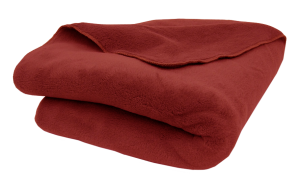
Clothing, bedding, blankets, and other textile items can often be donated to various charitable organizations. If possible, find a reuse option before disposing. For NC State property, please contact University Surplus Property Services.
Reuse Options
- Donate during Wolf Pack N Give, NC State’s move-out program
- Donate professional attire to the Wolfpack Styled Professional Clothing Closet
- Donate to local nonprofits, animal shelters and thrift-stores
Recycle Options
- If your blankets, bedding, clothing, and textiles are unable to be used again, please drop them off at College of Textile’s Green Zone bin.
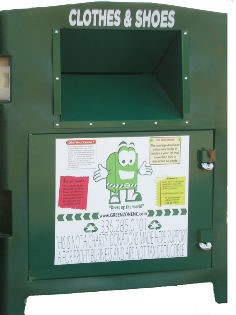
Books

Many books can be sold to various book purchasers or donated to charitable organizations. If possible, find a reuse option before recycling. For NC State property, please contact University Surplus Property Services.
Acceptable Items
- Paperback books
- Hardback books
Reuse Options
- Donate during Wolf Pack N Give, NC State’s move-out program
- Donate to local nonprofits
Recycling Locations
- If you have fewer than 5 books please contact us.
- If you have a larger quantity of books, contact us to request a cleanout cart.
Bubble Wrap / Plastic Bags & Film
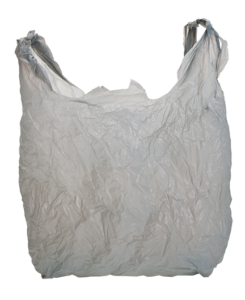
Avoid plastic bags entirely, and bring your own reusable bag when shopping! Remember recycling must be placed in containers loose- never bag your recycling; keep it loose!
Acceptable Items
- Plastic Bags
- Newspaper bags
- Bread bags
- Produce bags
- Dry cleaning bags
- Case wrap
- Bubble Wrap
- Plastic shipping envelopes
- Air pillows
- Pallet wrap
- Ice bags
- Clean food storage bags
Reuse Tip
- Reuse a plastic bag to line a small waste bin instead of buying new plastic can liners
Recycling Tips
- Make sure bags are clean and dry
- Plastic bags should never be put in with mixed recycling as they can cause equipment malfunctions at the recycling center.
- Are you collecting plastic film? Print and post this Plastic Film flyer!
Recycling Locations
- Many local grocery stores offer plastic bag recycling, including the Food Lion on Western Blvd and the Target on Hillsborough
- Plastic Film recycling is also available for back-of-house operations (not available for general public) at
- Avent Ferry Technology
- Biltmore Hall
- CVM Main
- DH Hill Library
- Fitts-Woolard Hall
- Hunt Library
- Textile Complex
- Jordan Addition
- Mail Services (Facilities Warehouse)
- The Oval (loading dock)
- Pulp & Paper
- Schaub Food Science
- Student Health Center
- Sullivan III (WRR)
- Talley Student Union (loading dock & information desk)
Cans

Acceptable Items
- Aluminum cans
- Steel cans
Recycling Locations
- Bottles & cans recycling bins
- Mixed recycling bins
- Blue mixed recycling dumpsters
Car Batteries / Lead-Acid Batteries

Acceptable Items
- Lead acid batteries (vehicle batteries) from NC State owned vehicles only
Recycling Locations
Cardboard
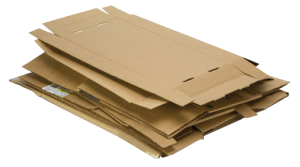
Acceptable Items
- Corrugated cardboard boxes
- Cardboard appliance boxes
- Shipping boxes
Recycling Tips
- Break down and flatten all cardboard prior to recycling
- Make sure all packaging materials are removed and properly discarded
- Boxes containing food residue are not acceptable
Recycling Locations
- Blue mixed recycling dumpsters
Carpets

Carpets/throw rugs in good condition can often be donated. For NC State property, please contact University Surplus Property Services.
Reuse Options
- Donate during Wolf Pack N Give, NC State’s move-out program
- Donate to local nonprofits
Disposal Tips
- Carpets/throw rugs in poor condition should be placed beside your nearest landfill dumpster for disposal. Do not place inside the dumpsters because they can cause damage to the compaction equipment.
Cartridges & Ink

Acceptable Items
- Toner cartridges
- Printer ink
Recycling Tips
- Please place used cartridges/ink in original packaging or a closed bag prior to recycling
Recycling Locations
- Yellow electronics recycling bins located at outdoor waste and recycling site
Clothing / Textiles

Clothing, bedding, blankets and other textile items can often be donated to various charitable organizations. If possible, find a reuse option before disposing. For NC State property, please contact University Surplus Property Services.
Reuse Options
- Donate during Wolf Pack N Give, NC State’s move-out program
- Donate professional attire to the Wolfpack Styled Professional Clothing Closet
- Donate to local nonprofits and thrift-stores
Recycle Options
Compost
The NC State Compost Facility and Research Cooperative can process up to 1,200 tons of organic waste annually, collected across our campus. Help NC State meet its 70% waste diversion goal by composting the following:
| Food | Compostable Products | Organics |
|---|---|---|
| Vegetables | BPI-Certified Serviceware | Plant Material |
| Fruits | Compostable Coca-Cola Cup, Lid & Straw | Soil |
| Meat | Pizza Boxes | Flowers |
| Bones | Bamboo Plates | |
| Dairy | Napkins | |
| Grains | Paper Coffee Filters | |
| Bread | Paper Bags | |
| Eggshells | Compostable Bags | |
| Coffee Grounds | ||
| Pizza |
Unacceptable Items
- Plastic bags
- Non-Compostable to-go cups
- Plastic utensils
- Wrappers
- All plastics
- Recyclables
- General landfill waste
Composting Tips
- Always make sure your compost is free of plastic packaging, stickers, staples, and other manufactured materials
- If you are unsure if it is compostable, contact us! However, when in doubt, throw it out (in a waste-to-landfill bin).
- Visit NC State Composts for more information
- Take Composting 101 on REPORTER
Campus Composting Locations
Please see NC State’s Compost Dumpsters map for locations where compost (generated on campus) can be disposed of.
Off-Campus Composting Locations
- Wake County Convenience Sites (for compost generated OFF CAMPUS)
Coffee: Grounds, Filters and K-Cups

Acceptable Items (Compost Only)
- Coffee Grounds (please cool prior to placing in bin)
- Paper Filters
Reuse Options
- K-Cups and other single serve coffee filters cannot be recycled locally here in the City of Raleigh. An alternative to creating this type of waste is to purchase a reusable filter for these types of machines
Sustainability Tips
- Coffee is offered at almost every NC State Dining location. If your office or residence hall has its own coffee maker, be sure to buy ground, fair trade, shade grown coffee.
Construction and Demolition

Construction and Demolition materials can only be accepted from on-campus projects.
Acceptable Items
- Concrete
- Brick
- Wood
- Metal
- Wiring
- PVC pipe and fittings
Recycling Tips
- Construction & Demolition material should never be placed in dumpsters as they cause vehicle damage during compaction
- For reuse and recycling tips, please visit the Construction & Demolition Management, including this Rolloff Checklist Form
Recycling Locations
Cooking Grease/Oil
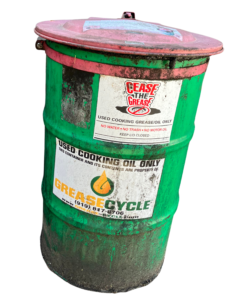
Cease the Grease is a partnership between WRR and University Housing. This program is an expansion of the university’s successful cooking grease recycling program in on-campus dining facilities, which recycle about 800 gallons of oil a month.
Acceptable Items
- Cooking Grease
- Cooking Oil
Recycling Tips
- Do not pour cooking grease/oil down the drain
- Cool your grease/oil and pour into a plastic Cease the Grease container or a glass or metal container
- Empty the container into your designated bin
- See this guide for tips and information
Recycling Locations
- Designated Cease the Grease green oil containers are located near the outdoor waste and recycling sites at all of the on-campus apartments
- Check out this map to find where they are located on campus!
Cubicles

Acceptable Items
- Cubicles from NC State owned buildings only
Recycling Tips
- Do not place cubicles into landfill dumpsters
- For large items, please contact us
- For NC State property, please contact University Surplus Property Services
Recycling Locations
E-Cigarettes / Vapes

Electronic cigarettes and accessories are not recyclable on campus.
Please dispose of them in a waste-to-landfill bin on campus.
Futons / Mattresses
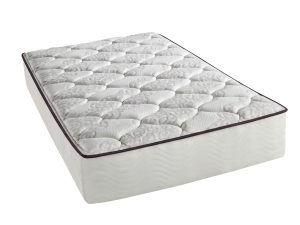
Mattresses and futons in good condition can often be donated. For NC State property, please contact University Surplus Property Services.
Reuse Options
- Donate during Wolf Pack N Give, NC State’s move-out program
- Donate to local nonprofits
Disposal Tips
- Do not place mattresses, futons, & furniture into landfill dumpsters.
- Take mattresses, futons, & furniture to Dearstyne Convenience Site.
- For NC State property, please contact University Surplus Property Services
- For large items, please contact us
Gas Cylinders / Propane Tanks
Acceptable Items
- Propane Tanks owned by NC State University
- Compressed Gas Cylinders owned by NC State University
Recycling Tips
- When returning compressed gas cylinders to the vendor, remove the gas connections, replace cylinder caps and return cylinders to suppliers by calling NC State Central Stores at (919) 515-2197
- Lecture bottles are generally not returnable to the vendor and may need to be disposed of as hazardous waste through Environmental Health & Safety
- Environmental Health & Safety recommends not using lecture bottles due to high disposal costs
- Non-regulated cylinders (such as helium and calibration gasses) can be recycled at our Dearstyne Convenience Site to be collected for scrap metal if they are depressurized and have their valve removed.
Recycling Locations
- For more information, please contact Environmental Health & Safety at (919) 515-7915
Lead Acid Batteries

Acceptable Items
- Lead acid batteries (vehicle batteries) from NC State owned vehicles only
Recycling Locations
Light Bulbs
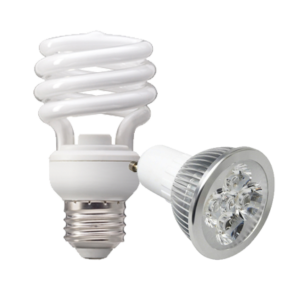
Acceptable Items
- CFL & LED Bulbs from NC State owned buildings only
- Fluorescent lighting system ballasts from NC State owned buildings only
Unacceptable Items
- Incandescent light bulbs should be disposed of in a landfill bin
Recycling Locations
- Dearstyne Convenience Site
- For more information and collection, please contact Environmental Health & Safety at (919) 515-7915 and review this Safety Quick Facts Sheet for proper handling and storage of fluorescent lamps/bulbs.
Mattresses

Mattresses and futons in good condition can often be donated. For NC State property, please contact University Surplus Property Services.
Reuse Options
- Donate during Wolf Pack N Give, NC State’s move-out program
- Donate to local nonprofits
Disposal Tips
- Do not place mattresses, futons, & furniture into landfill dumpsters
- Take to Dearstyne Convenience Site.
- For NC State property, please contact University Surplus Property Services
- For large items, please contact us
Medicines
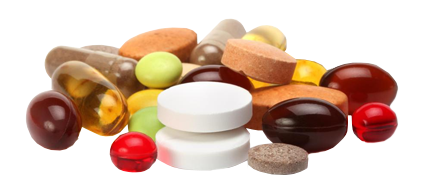
Follow any specific disposal instructions on the prescription drug labeling or patient information that accompanies the medicine. Please contact the NC State Student Health Center for more information regarding proper disposal of medication.
Recycling Tips
- Review NC State Student Health’s Med-Safe Drop Box tips.
- Do not flush medication down the toilet or in a sink
- Participate in a community medicine take-back program
Recycling Locations
- Contact the NC State Student Health Center
Metal
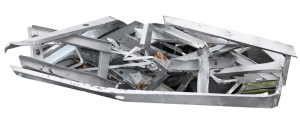
Metals are fully recyclable and valuable.
Acceptable Items
- Aluminum
- Steel
- Copper
- Other metals under 8 feet
Recycling Tips
- Do not place metal into landfill dumpsters
- For large items, please contact us
Recycling Locations
Oil and Anti-Freeze
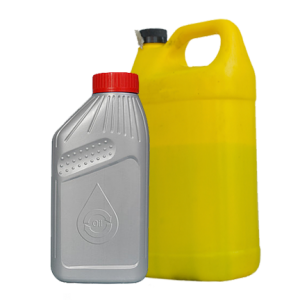
Acceptable Items
- Motor Oil
- Anti-Freeze
Recycling Locations
- For more information, please contact Environmental Health & Safety at (919) 515-7915
- Contact a local auto parts store or repair shop
Paper

Acceptable Items
- Newspaper
- Office paper
- Brochures
- Magazines
- Junk mail
- Paperboard
- Paper tubes
- Clean paper bags
Unacceptable Items
- Pizza boxes
- Food covered paperboard
Recycling Tips
- Break down small paperboard boxes (ex. Cereal boxes, shoe boxes, etc.) before recycling
- Make sure boxes and bags are not contaminated with food waste
Recycling Locations
- Bottles & cans recycling bins
- Mixed recycling bins
- Blue mixed recycling dumpsters
Pallets

Acceptable Items
- Pallets
Recycling Tips
- Do not place pallets into landfill dumpsters. Pallets are BANNED from landfill disposal by North Carolina General Statute 130A-309.10(f-m).
- 1-5 pallets can be left next to dumpsters or in service areas. Pallet pick-up is not on a set schedule. Pallets will be collected when the Grounds crew has time and/or space at no charge.
- University employees may take pallets to Dearstyne Convenience Site for recycling at no charge.
- For more than 5 pallets, please contact us for service; billing may apply.
- Large generators of pallets should work with their vendors for take-back programs and reuse.
Recycling Locations
Pipette Tips, Boxes and Wafers
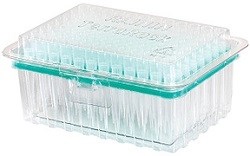
Please contact Environmental Health and Safety for questions regarding lab waste disposal procedures. Please note that due to current market conditions, pipette boxes and pipette wafers cannot be recycled in your building’s mixed recycling bins, carts, and/or dumpsters.
Recycling Tips
- Please contact us to set up pipette tip, box, and/or wafer recycling in your building!
Pizza Boxes
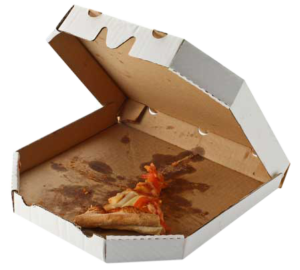
Pizza boxes are not always able to be recycled due to grease and cheese residue left on the boxes. At NC State University pizza boxes can be composted. The Pizza Box Composting Project is a partnership between WRR and University Housing.
Acceptable Items
- Pizza boxes
- Pizza slices/crust
- Paper plates
- Napkins
- Food, compostable products, & organics
Composting Tips
- Remove all plastic pizza stands, sauce containers and packets from the pizza box before composting
- Do not compost any type of plastic (ex. plastic utensils, cups, plates)
Composting Locations (13)
- Avent Ferry Complex (waste station by Fort Fisher Hallor F building)
- Bragaw- South, Lee and Sullivan halls (Lee Hall parking lot by the trash dumpster)
- Bragaw- North, Lee and Sullivan halls (Bragaw Hall parking lot by the trash dumpster)
- Bowen, Carroll, Metcalf halls (against the brick wall near the trash dumpster)
- ES King Village (Beaufort Hall parking lot)
- ES King Village (Edgecombe Hall parking lot)
- ES King Village (Granville Hall parking lot)
- Quad Commons (formerly Honors Village, against Becton & tucked behind existing trash & recycling dumpsters)
- Western Manor (central waste station)
- Western Manor (Apts. P/Q parking lot)
- Wolf Village (waste station by the bus stop)
- Wolf Ridge (waste station by Plaza Hall)
- Wood Hall
Click here to view a map of the pizza box composting dumpsters.
Plastic Bags & Film

Avoid plastic bags entirely, and bring your own reusable bag when shopping! Remember recycling must be placed in containers loose- never bag your recycling; keep it loose!
Acceptable Items
- Plastic Bags
- Newspaper bags
- Bread bags
- Produce bags
- Dry cleaning bags
- Case wrap
- Bubble Wrap
- Plastic shipping envelopes
- Air pillows
- Pallet wrap
- Ice bags
- Clean food storage bags
Reuse Tip
- Reuse a plastic bag to line a small waste bin instead of buying new plastic can liners
Recycling Tips
- Make sure bags are clean and dry
- Plastic bags should never be put in with mixed recycling as they can cause equipment malfunctions at the recycling center.
- Are you collecting plastic film? Print and post this Plastic Film flyer!
Recycling Locations
- Many local grocery stores offer plastic bag recycling, including the Food Lion on Western Blvd and the Target on Hillsborough
- Plastic Film recycling is also available for back-of-house operations (not available for general public) at
- Avent Ferry Technology
- Biltmore Hall
- CVM Main
- DH Hill Library
- Fitts-Woolard Hall
- Hunt Library
- Textile Complex
- Jordan Addition
- Mail Services (Facilities Warehouse)
- The Oval (loading dock)
- Pulp & Paper
- Schaub Food Science
- Student Health Center
- Sullivan III (WRR)
- Talley Student Union (loading dock & information desk)
Plastics

Acceptable Items
- Plastic bottles with caps on
- Laundry detergent bottles
- Yogurt and butter tubs
- Plastic Souvenir cups
Unacceptable Items
- Plastic clamshells (berry containers, to-go food containers, etc.)
- Thin brittle plastic cups (ex. solo cups)
- Lab chemical containers- contact EHS for proper disposal information
- PLA cups or containers made from corn and other plant starches – these items are meant to be composted and not recycled!
Recycling Tips
- Leave bottle caps on so they are not lost during the recycling process.
- Place any loose caps in landfill bins, not recycling bins!
- Empty and lightly rinse before recycling
- Plastic bags should only be recycled in designated bins specifically for plastic bags as they can damage equipment at recycling centers
- Recycling symbols on containers do not mean that the product is recyclable! Recyclability is based on our current recycling facility processes and the global market for resale value.
- Contact us for help or more information
Recycling Locations
- Bottles & cans recycling bins
- Mixed recycling bins
- Blue mixed recycling dumpsters
Why are some plastics not recyclable?
- Not all plastics can be recycled because there is either not a process for sorting it out at the recycling facility or there is not a stable market for those items.
- Certain plastics also end up breaking into tiny pieces during the sorting process and end up as residual waste.
Propane Tanks
Acceptable Items
- Propane Tanks owned by NC State University
- Compressed Gas Cylinders owned by NC State University
Recycling Tips
- When returning compressed gas cylinders to the vendor, remove the gas connections, replace cylinder caps and return cylinders to suppliers by calling NC State Central Stores at (919) 515-2197
- Lecture bottles are generally not returnable to the vendor and may need to be disposed of as hazardous waste through Environmental Health & Safety
- Environmental Health & Safety recommends not using lecture bottles due to high disposal costs
- Non-regulated cylinders (such as helium and calibration gasses) can be recycled at our Dearstyne Convenience Site to be collected for scrap metal if they are depressurized and have their valve removed.
Recycling Locations
- For more information, please contact Environmental Health & Safety at (919) 515-7915
Rugs

Carpets/throw rugs in good condition can often be donated. For NC State property, please contact University Surplus Property Services.
Reuse Options
- Donate during Wolf Pack N Give, NC State’s move-out program
- Donate to local nonprofits
Disposal Tips
- Carpets/throw rugs in poor condition should be placed beside your nearest landfill dumpster for disposal. Do not place inside the dumpsters because they can cause damage to the compaction equipment.
Styrofoam (Extruded Polystyrene #6)
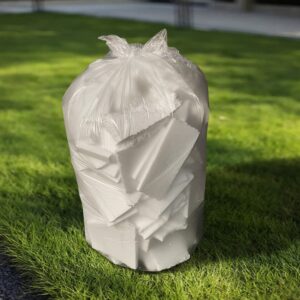
NC State can collect specialty recycling such as Styrofoam. Please place your Styrofoam in a clear bag beside of yellow electronics carts!
Acceptable Items
- Styrofoam primarily used in packaging
- Rigid
- Flexible
Unacceptable Items
- NO packing peanuts!
- NO cups or to-go containers!
- NO soft foam!
Recycling Tips
- For unacceptable Styrofoam, check with a local mailing facility to determine if they have a reuse/recycle program or Donate to the Scrap Exchange.
- Place acceptable Styrofoam in a clear bag.
- Place bagged Styrofoam beside yellow electronics carts.
Syringe Cases

Please contact Environmental Health and Safety for questions regarding lab waste disposal procedures. Syringe cases cannot be recycled in your building’s mixed recycling bins, carts, and/or dumpsters. However, they can be collected separately in specially marked bins & carts labeled “Recycle Syringe Cases”.
Recycling Locations
- Syringe case recycling is only available at the College of Veterinary Medicine at this time
- Please contact us for questions regarding this specialty collection program
Tissues (Kleenex)
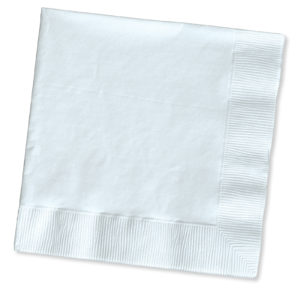
Used tissues (i.e. Kleenex) or napkins containing bodily liquids can only be composted on campus. If a compost bin is not available, please place these items in a landfill bin.
Composting Locations
- See our composting locations map.
Vials / Lab Waste
Please contact Environmental Health and Safety for questions regarding lab waste disposal procedures. You can also contact sustainablelabs@ncsu.edu for assistance or questions related to the Sustainable Labs program.
Acceptable Items
- Pipette boxes and wafers
- Syringe Cases
Unacceptable Items
- Lab glass
- Chemical containers
- Vials
- Pipette tips
- Medical waste
- Lab fridges
